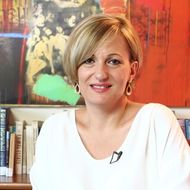The WHO’s technical risk communication and social media teams have been working 24 hours a day to track and respond to rumors, misinformation and myths “to identify the most prevalent rumors that can potentially harm the public’s health, such as false prevention measures or cures.” They are trying to counter this blight by providing evidence-based information. However, false information is making its way around the world faster than the virus to such an extent, that the WHO has “declared misinformation and fear as some of the biggest challenges they face with the new coronavirus.”
It doesn’t help that there is contradictory information being provided by governments, global health agencies, experts and doctors as they too try to find and provide answers so many people desperately need. This inconsistent information overload is hitting us like an avalanche at such dizzying speeds that it’s making us all lose our balance and our common sense.
The heart wrenching video images and stories coming out of Italy these last several days should be a clarion call to all peoples everywhere. As much as we may distrust our governments, as much as they may have made bad calls or blundered, the sooner we all listen and follow some very basic guidelines - washing our hands, social distancing, self-isolation - the sooner we may all come out on the other end of this pandemic. The time will come for retribution (if that is what you desire), that time is not now.
And on a personal note, as a journalist, I have been asking myself if I’m doing a disservice to the public by constantly reporting on the number of cases being confirmed in Armenia, on every piece of official news being released by the State Commission on the state of emergency. And perhaps more importantly, am I doing it properly? Am I crossing any line between reporting the facts and creating concern, even unnecessary panic?
And then there’s the personal toll; not being able to turn it off, because your job requires you to read everything you can get your hands and eyes on while self-isolating from the very people who make your life worth living - children, grandchildren, friends, community. Certainly, it doesn’t compare to the superhuman work and dedication of medical staff all over the world who are on the frontlines of what has become our generation’s defining moment, but it doesn’t make it any easier nonetheless.
So before you share a link, make sure you’ve read the content; before you write a status or tweet, remember the burden of responsibility you have as a citizen-broadcaster; don’t get pulled into “conversations” or threads on social media to try and counter a lie, because the more you do that the more you’re simply repeating the falsehood; criticize, absolutely, but before you take cheap shots (for political gain) at governments and international organizations that are trying to wade through the complex needs and required responses to confront this invisible nightmare, think about your own actions and social responsibility and serve by example.


